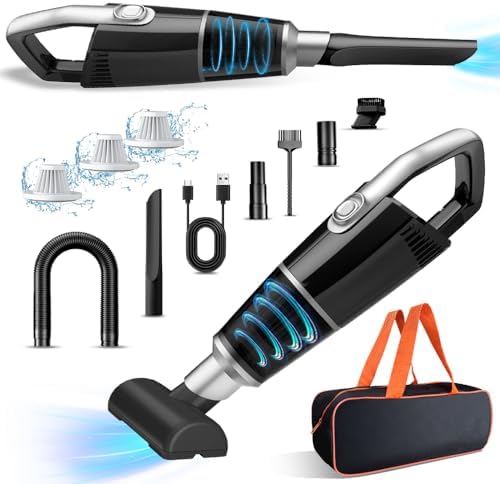9 Best Jokes for Kids: Fun & Educational Laughs to Share with Your Little Ones
Laughter is the best medicine, especially when it comes from the innocent giggles of children. Whether you’re looking to lighten the mood at home or entertain a group of kids at a party, a good joke can work wonders. But finding the right jokes that are both funny and age-appropriate can be a bit of a challenge.
Joke 1: Classic Animal Humor
How Animal Jokes Stimulate Creativity
Animal jokes have a knack for igniting children’s imagination. Kids often visualize the scenarios described, which helps boost their creativity. When they picture a duck quacking jokes or a giraffe being too tall for a punchline, they engage more deeply with the humor.
Example Joke
Why did the chicken join a band?
Because it had the drumsticks!
Why It’s Effective
Animal jokes like this one are simple yet clever. They tap into a child’s understanding of animals and their behaviors, making the punchline easy to grasp. The humor lies in the playful twist that gives familiar animals unexpected roles, making kids smile or laugh effortlessly.
Joke 2: Perfect Play on Words
Wordplay and puns offer an engaging way for kids to explore language, enhancing their cognitive and linguistic skills.
The Learning Benefits of Puns for Children
Puns help kids develop language awareness. They learn to appreciate the multiple meanings of words, fostering a deeper understanding of vocabulary. By recognizing and creating puns, children enhance their critical thinking and problem-solving skills. For example, a joke like “Why did the scarecrow win an award? Because he was outstanding in his field!” encourages kids to think about the different contexts in which words can be used. Plus, it’s a perfect way to make language learning fun and memorable.
Joke 3: Knock, Knock Jokes
Knock, knock jokes are timeless classics that entertain kids while teaching them valuable social skills. These simple, interactive jokes encourage dialogue, making them perfect for educational and entertainment purposes.
Enhancing Social Skills Through Knock, Knock Jokes
Promoting Interaction: Knock, knock jokes involve a two-way exchange, which helps children learn to take turns in conversations. This dynamic interaction is essential for developing proper communication skills.
Building Confidence: Telling knock, knock jokes gives kids the opportunity to speak up in social settings. It boosts their confidence, especially when they see others laugh at their jokes.
Encouraging Listening: These jokes require active listening. For instance, starting with “Knock, knock,” a kid must wait for the response “Who’s there?” before proceeding. This teaches patience and the importance of listening to others.
Facilitating Connection: Knock, knock jokes can be a fun way for kids to bond with friends and family. Sharing laughter helps build stronger relationships and creates a sense of camaraderie.
Ensuring Humor Understanding: Repeating simple patterns helps children grasp how jokes work. For example, “Knock, knock.” “Who’s there?” “Lettuce.” “Lettuce who?” “Lettuce in, it’s cold out here!” This helps them understand humor structure.
Joke 4: Silly Food Giggles
Food jokes tickle kids’ funny bones and teach them about different foods. It’s a fun way to get kids interested in healthy eating.
Teaching Kids About Food Through Humor
Humor helps make food more appealing to kids. For instance, a joke like, “Why did the banana go to the doctor? Because it wasn’t peeling well!” teaches them about bananas and keeps them entertained. Using jokes introduces them to new foods and keeps mealtime fun. You can discuss the joke afterward, explaining why certain foods are healthy. It’s a lighthearted approach to education through laughter, making learning about nutrition a pleasant experience. Engaging humor boosts memory retention, ensuring they remember both the joke and the lesson about food.
Joke 5: School-Themed Zingers
School-themed jokes make learning fun and engaging. Let’s explore how a few laughs can improve your child’s educational experience.
Connecting Laughter to Learning
Laughter makes learning more memorable and enjoyable. When kids laugh, they release stress, which helps them absorb new information better. For example, a joke like “Why did the student eat his homework? Because his teacher told him it was a piece of cake!” connects humor with a common school scenario, making it easier for the child to recall the joke and the context.
Laughter also enhances active participation in the classroom. Children are more likely to engage and contribute when the environment is lighthearted. Including jokes during lessons can improve attention and interest in subjects that might otherwise seem dull. In these instances, laughter is a powerful tool for both teachers and parents.
Using humor specific to the school environment, such as test-related jokes or classroom antics, can make academic challenges less intimidating. This tactic isn’t just about easing anxiety; it helps kids see the lighter side of stressful situations, making them more confident in tackling their studies.
School-themed jokes foster a sense of camaraderie among students. Sharing a laugh over a familiar experience builds bonds and enhances cooperation. For instance, a joke like “Why was the math book sad? Because it had too many problems!” can spark conversations and create a shared sense of humor among classmates.
By incorporating school-themed zingers into daily routines, you help your child develop a positive attitude toward school and learning. Laughing together over these jokes can turn a mundane day into a memorable one, solidifying both educational and emotional connections.
Joke 6: Out-of-This-World Space Jokes
Stimulating Interest in Science and Space
Engaging children with space jokes is a fantastic way to spark their interest in science and astronomy. When kids laugh at a clever alien or planet joke, they’re more likely to develop curiosity about the universe. For instance, telling a joke like, “Why did the sun go to school? To get brighter!” can make learning about celestial bodies enjoyable.
Incorporating humor related to space can also help children remember facts and concepts. When kids find jokes humorous, they tend to repeat them, reinforcing their knowledge about the subject. By weaving fun into education, you can make science an exciting adventure rather than a mundane task.
Joke 7: Hilarious Holiday Jests
Laughter is an essential part of any holiday celebration. Sharing festive jokes with kids not only lightens the mood but also makes the moments more memorable.
Celebrating Festivities With Fun
Introduce humor to holiday festivities to add joy. Here are some jokes that your kids will love:
- Why did the turkey join the band? Because it had the drumsticks!
- What is a snowman’s favorite food? Ice Krispies!
- How do you know Santa is good at karate? Because he has a black belt!
These jokes capture the essence of the holidays, bringing smiles to children and adults alike.
Joke 8: Timeless “What Do You Call” Jokes
These “What Do You Call” jokes are timeless gems that never fail to amuse children. They’re simple yet clever, making them perfect for sparking a child’s curiosity and sense of humor.
Expanding Vocabulary Through Jokes
These jokes often introduce new words and concepts in a fun way. For example:
- “What do you call a bear with no teeth? A gummy bear!”
- “What do you call a fake noodle? An impasta!”
Kids love these jokes because they’re easy to remember and retell. They also learn new words like “gummy” and “impasta,” expanding their vocabulary without even realizing it.
Joke 9: Funny Family-Friendly Riddles
By now, you know that jokes bring joy to children, but riddles offer an added bonus. They help in boosting logical thinking and problem-solving skills. Here are some fun family-friendly riddles to challenge your little ones.
Building Logic and Problem-Solving Skills
Riddles challenge kids to think critically and outside the box. When kids try to solve riddles, they use analytical thinking, which can enhance their problem-solving skills. For example:
- What has keys but can’t open locks?
A piano. - I speak without a mouth and hear without ears. What am I?
An echo. - What has hands but can’t clap?
A clock.
These riddles not only entertain but also encourage kids to think in unconventional ways, fostering creativity and enhancing their cognitive abilities.
Conclusion on the 9 Best Jokes for Kids
Sharing jokes with kids isn’t just about laughter; it’s about fostering creativity, cognitive skills, and social interaction. From animal jokes to wordplay and puns, each type of joke offers unique benefits that contribute to a child’s development. Knock, knock jokes teach social skills, while food jokes make learning enjoyable.
“What Do You Call” jokes and space jokes spark curiosity and interest in new subjects. Holiday-themed jokes bring festive joy, and riddles enhance logical thinking and problem-solving abilities. By incorporating these jokes into daily interactions, you’re not only entertaining children but also supporting their growth in a fun and engaging way.






